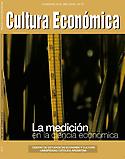Conceptual, Methodological and Practical Options in Poverty Measurement: the Poverty Inform of Irak 2010
Keywords:
MEASUREMENT, POVERTY, ECONOMIC METHODOLOGY, INDICATORS, SOCIAL WELFAREAbstract
In the present study, the author claims that the conceptual, methodological and practical choices involved in any poverty measurement exercise have consequences on the estimated magnitude, depth and structure of poverty. Nevertheless, these options are not always explicit. The 2010 Iraqi Poverty Report, published by the World Bank, represents an exception in this sense. The author uses this case to explore in detail the underlying options in the welfare indicator, the poverty line and the poverty measures, showing the importance of making these choices explicit.Downloads
References
Atkinson, B.A. (1998). Poverty in Europe, Blackwell Publishers, Oxford.
Battiston, D., G. Cruces, L. López Calva, M.A. Lugo y M.E. Santos (2009). “Income and Beyond: Multidimensional Poverty in six Latin American countries”, OPHI Working Paper Series No.17, OPHI.
Deaton, A. (1997), The Analysis of Household Surveys: A Microeconometric Approach to Development Policy, John Hopkins
University Press for the World Bank, Baltimore.
Deaton, A. y A. Tarozzi (2006), “Prices and poverty in India”, in Deaton, A. y Kozel, Data and Dogma: The Great Indian Poverty Debate, Macmillan India, New Delhi.
Deaton, A. y S. Zaidi (2002), “Guidelines for Constructing Consumption Aggregates for Welfare Analysis”, LSMS Working Paper 135, World Bank, Washington.
Feres, J. C. y Mancero, X. (2001), “El método de las necesidades básicas
insatisfechas (NBI) y sus aplicaciones a América Latina”, Series Estudios Estadísticos y Prospectivos, CEPAL –Naciones Unidas.
Foster, J.E., J. Greer y E. Thorbecke (1984), “A Class of Decomposable poverty Indices”, Econometrica, 44(2), pp. 219-31.
Gasparini, L. (2004), “Poverty and Inequality in Argentina: Methodological Issues and a Literature Review”. CEDLAS – World
Bank.
Grootaert, C. y R. Kanbur (1994), “A New Regional Price Index for Cote d”Ivoire using Data from the International Comparison Project”, Journal of African Economies, Volumen 3, No. 1.
Hagenaars, A. y K. de Vos (1987), “The Definition and Measurement of Poverty”, The Journal of Human Resources, XXIII (2), pp. 211-21.
Kedir, A., R. Disney y A. McKay (2003), “Price Deflators and Food Poverty in Urban Ethiopia”, Mimeo, Escuela de Economía, Universidad de Nottingham.
Lanjouw, P. (2009), “Constructing a Consumption Aggregate for the Purpose of Welfare Analysis: Principles, Issues and Recommendations Arising from the Case of Brazil”, Mimeo.
Ravallion, M. (1994), Poverty Comparisons, Harwood Academic Publishers, Londres.
Ravallion, M. y B. Bidani (1994), “How Robust Is a Poverty Profile?”, The World Bank Economic Review, 8, 1, pp. 75-102.
Ruggeri-Laderchi, C., R. Saith y F. Stewart (2003), “Does it Matter that We Do Not Agree on the Definition of Poverty? A comparison of Four Approaches”, Oxford Development Studies, 31, pp. 244-74.
Santos, M.E. y K. Ura (2008), “Multidimensional Poverty in Bhutan:
Estimates and Policy Implications”, OPHI Working Paper Series No.14, OPHI.
Sen, A. (1976), “Poverty: an Ordinal Approach to Measurement”, Econometrica, 52(3), pp. 761-6.
Sen, A. (1985), Commodities and Capabilities, North Holland, Amsterdam.
Sen, A. (1987), “The Standard of Living: Lecture I, Concepts and Critiques”, in G. Hawthorn (ed.), The Standard of Living, Cambridge University Press, Cambridge.
Sen, A. (1993), “Capability and-well being”, in Nussbaum, M.C. y A. Sen (eds.), The Quality of Life, Clarendon Press, Oxford.
Sen, A. (1996), “On the Status of Equality”, Political Theory, 24.
Sen, A. (1999), Development as Freedom, Oxford University Press, Oxford.
Székely, M., N. Lustig, M. Cumpa y J.A. Mejía (2000), “Do we know how much poverty there is?”, Working Paper 437, Inter-American Development Bank, Washington.
World Bank (2010), Confronting Poverty in Iraq, World Bank, Washington.
Downloads
Published
How to Cite
Issue
Section
License













